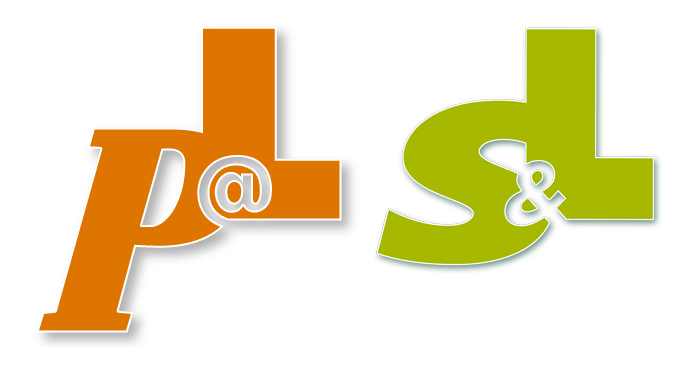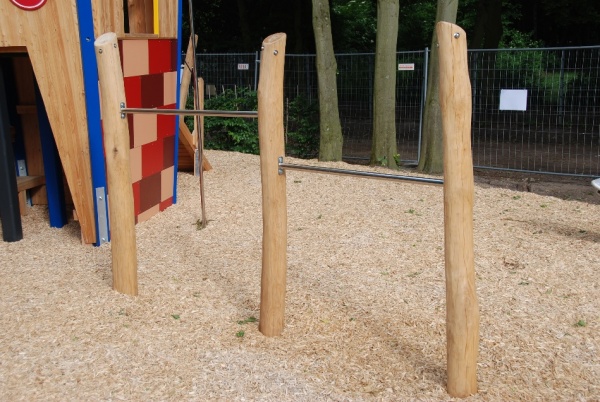Fair city sharing - what can urban planning contribute?
Our cities have grown over centuries. This also reflects the history of urban society, i.e. who was in charge, which professions were accessible to whom. A city is a multi-layered structure:...


YOUR FORUM FOR PLAY, SPORTS UND LEISURE AREAS

Tailored loan conditions to meet your funding needs? An article under the title “Schrumpfkur für die Spielplätze” (Slimming diet for playgrounds) was posted by Paderborn journalist Hans-Hermann Igges at www.nw-news.de on 21 September 2011. (…) It seems that the plan is to develop larger but fewer playgrounds - this includes playing fields - in the municipal area (of Paderborn, Editor's Note) over the next six years, thus reducing the space devoted to outdoor play in the city by some 30%. Instead, the authorities intend to construct bigger, centralised playgrounds at “suitable locations”. (…) This scheme is based on proposals submitted by the business consultancy firm Rödl & Partner, which were endorsed by Paderborn’s city council on 22 June 2010. The general expectation is that the related reduction of the costs of maintenance and repair of municipal playgrounds will result in savings of up to €144,000 annually to 2017.
The ideal solution for funding play areas? But will it be the children who be forced to pay, and not just literally, for the debts incurred by their local authority? So just how viable is the playground funding concept devised by Rödl & Partner? We would have liked to have been able to present their proposals in detail in Playground@Landscape. Unfortunately, Rödl & Partner have not, as yet, replied to our enquiries. We hope that they will in due course provide us with the necessary information so that we can publish it in issue 3 of 2013.
Playground funding in Bremen
And there are, of course, quite different ways of approaching the problem. Through its Zuhause für Kinder (A home for children) project, the Protestant congregation of the church of St. Matthäus in Bremen is hoping to improve the future for children from socially disadvantaged families. At the cost of some €2 million, it has constructed a public children’s and youth centre in Bremen’s Huchting district where every third child is dependent on state benefits. Just €30,000 of this total was provided from the public purse, while almost €1 million was made up by small donations from private individuals.
In an opening ceremony held appropriately on International Children’s Day in 2012, an event intended to draw attention to the right of children to play and recreation, Zuhause für Kinder inaugurated its new adventure playground. The costs of playground construction and maintenance, amounting to more than €650,000, were and are being met through donations.
Bremen‘s Mayor Jens Böhrnsen and the President of the Protestant church community in Bremen, Brigitte Boehme, presided over the opening ceremony on 18 September 2012. Among the many prominent guests of honour present, who included Pastor Bernd Siggelkow from Berlin, the founder of the Arche children’s charity, and Helmut Westkamp, the Director of Bremen’s Jobcentre, was the retired footballer Frank Baumann, then assistant manager and now manager of his old club, SV Werder Bremen. But all this was of little interest to the children, who simply could not wait to be let loose on their new playground.
With its innovative adventure playground that covers an area of 5500 m2, Zuhause für Kinder is providing children with targeted options that will encourage them to take the physical exercise that so many of them lack.
This ground-breaking, cross-generational sport and play area represents an exercise facility which is unique in Germany in the view of landscape architects and playground equipment manufacturers. It is designed to help counteract the tendency among today’s children to become excessively sedentary. Both the OECD report Doing Better for Children and the KiGGS study undertaken by the Robert Koch Institute make direct reference to this problem, pointing out that it is 2 – 3 times more likely to affect “children of parents of low social status”, a fact that is also emphasised in the European IDEFICS Study of the Institute for Prevention Research and Epidemiology of Bremen University. Playground consultants claim that there is no other play facility in Germany that offers such a combination of amenities designed to promote exercise among children. There is free access to the playground for all during the opening hours of the Zuhause für Kinder centre.
“This is a playground that actually provides children with what they need. Its success is primarily attributable to the concept of focusing on the ‘castle’ structure as core of the project. The planned high rope walk, which very nearly fell victim to cost-saving measures, was eventually realised in the form of a 25-metre long, 6-metre high rope course. We have thus also been able to integrate an 80-metre long cable slide and a boulder climbing section, on which children can climb to a height of 6 metres under supervision. The massive castle structure, with its rope walk, boulder climbing and top-rope section together with the flying fox, is the main attraction of the amenity. It is absolutely unique. Children can find out their own limits in the adventurous environment of the castle. We make appropriate safety provisions in the case of the climbing and high rope facilities, helping children overcome their fears under the care of appropriately trained supervisors,” explains Uli Paulig. It was with considerable imagination that the adventure playground was designed by his playground equipment manufacturing company, Uli Paulig - merry go round OHG.
Another pioneering aspect of this project is the fact that this is the first location on the European continent at which an ‘i.play’ system has been installed. The ‘intelligent play system’, costing tens of thousands of euros, was developed in collaboration with leading British sports technologists and is designed to promote movement among children who are insufficiently active on their own. The motor skills-exercising equipment of the mile-long exercise course was developed by Austria’s light athletics trainer Dr. Werthner with the same aim in mind. Users develop improved mobility, strength, speed and stamina.
The facility also has a multifunctional mini-football field that can be used for other ball games and a secure playing area for young children. The field with its artificial turf provides a venue for sporting and active games that so many children no longer indulge in.
The cross-generational outdoor facility also has many communal areas with seating that are intended to serve as meeting points.
“The adventure playground of Zuhause für Kinder is a location for play and a place at which the various generations come together to meet. Rather like a real home, it is divided into different rooms, thus offering within a compact area a vast range of diverse and challenging exercise options,” asserts Sabine Diegritz of the landscape architect firm WFP LandschaftsArchitekten werkstatt freiräume +, who participated in the planning process.
Financing a playground through donations
The playground cost €650,000 to construct. In addition to Bremen’s Protestant community (which provided €135,500), larger donations to the project were made by the nationwide children’s charity Ein Herz für Kinder (€120,000), the Bremen savings bank (€79,000), the Fritz Hollweg Foundation (€75,000) and the Waldemar Koch Foundation (€50,000). Lothar Bublitz of Zuhause für Kinder comments: “We would never have managed to construct the playground had it not been for the generosity of many organisations and companies. It was they who gave us confidence again at times when we could not see how we could possibly succeed. Similarly important was the input provided by the landscape architects WFP from Hamburg and the playground equipment supplier merry go round from Berlin. The central castle structure with ropeway, boulder section and cable slide is the only one of its kind in Germany. The new adventure playground and the many attractions offered by Zuhause für Kinder together with our indoor play area, which was opened last year and is Germany’s largest winter play facility, represent the realisation of a comprehensive overall concept.“
There were many little bright ideas that helped bring in money for the project. One such was the use of SMS text messaging to raise donations. By texting the keywords SPIELPLATZ or SPIELPLÄTZE to 81190, donors could contribute €5 or €10 respectively to the project. The attention of potential donors was drawn to this easy way of making a donation at benefit concerts and on charity day radio shows.
Zuhause für Kinder used other methods of motivating the citizens of Bremen to donate towards the new playground. The launch of a ‘Give children a playground for Christmas’ campaign and a major charity event were used as methods of raising the necessary cash. “What about a playground for Christmas? Not for yourself, that is, but for children who really need such a facility. Why not include a receipt with the presents you give to your own children, your family and friends showing that children from socially disadvantaged backgrounds have also received a present from you – a new playground? Instead of sending out Christmas gifts to their clients this year as usual, organisations might like to think about giving children a playground instead. You too can support our campaign ‘Give children a playground for Christmas’.”
The ENERGY Bremen radio station and center.tv Bremen also devoted a day to raising donations for the playground project. The local football team, Werder Bremen, posted a message on its website: “The Zuhause für Kinder project needs your help.”
The head of Bremen’s local government, Jens Böhrnsen, donated the fountain pen with which he had signed all documents and communications as Germany’s acting head of state from 31 May to 2 July 2010, following the resignation of President Horst Köhler. This ‘Presidential Pen’ was offered on Germany’s largest charity auction site, United Charity, and the proceeds of the sale were to be contributed towards the playground project. Just a few hours after being listed online, the bid for the pen had risen to €1500!
The company that owns Germany’s largest shopping centre, Dodenhof, celebrated its 100th anniversary in October together with its customers. And Dodenhof showed that it too, has a heart for children. It contributed 10 cents to the Zuhause für Kinder project for every sale completed in the period 1 – 10 October. “The proprietors, the Dodenhof family, explicitly expressed a wish that the money should go to a local cause. We came to the conclusion that the Zuhause für Kinder project was most deserving,” stated Dodenhof’s CEO, Frank Sperl, as he presented a cheque for a very substantial €26,000 towards the costs of construction. Dodenhof is one of the first sponsors of Zuhause für Kinder.
The personnel of Kellogg’s Germany subsidiary also got together to make a Christmas contribution towards the Zuhause für Kinder project. The corporate spokesman, Dr. Markus Dreißigacker, presented a cheque worth €5000 towards construction costs. Kellogg’s has thus also become an official sponsor of Zuhause für Kinder. In addition, Kellogg’s donated a voucher for every child so that they could enjoy a special adventure day in Bremen. The voucher could be used to obtain free entry to either the Paradice ice sports centre, the local go-kart track, the Westbad swimming pool or the Olbers planetarium.
Showing initiative, the German Football Association found another less typical way of supporting the Zuhause für Kinder playground project. It contributed a jersey signed by the members of German’s national soccer team. The autographed jersey was presented by the President of the Bremen Football Association, Björn Fecker, during the run-up to the UEFA Championship. On the day of the championship final, the jersey found its new owner, who paid €1000 for it.
The Bremen company dentaltrade used the occasion of the 2012 quad bike competition to make a further donation to Zuhause für Kinder. To help build the new playground, its Managing Directors Sven-Uwe Spies and Dr. Olaf Perleberg, presented the project with a cheque for €5000 at an event held in Bremen’s old marketplace. This leading provider of dental prosthetics had been supporting Zuhause für Kinder from its very inception: when the first foundation stone was laid, it donated €10,000, then contributed another €5000 on inauguration, €2000 after the first 100 days and €12,500 on the opening of the ‘winter playground’.
A total of 1521 plants were contributed to the new Zuhause für Kinder playground by the specialist optician, Fielmann AG. The plants were presented by the Director of the Fielmann branch in Bremen’s Roland shopping centre, Holger Sperling. Children from the local kindergarten themselves inaugurated their own young children’s play area by planting it and watering the plants. It is Fielmann’s policy to demonstrate its commitment to the environment and nature conservation through its ‘Fielmann trees’ project. It plants a tree each year for every one of its employees and to date, Fielmann has been responsible for the planting of 1 million trees and shrubs.
The above is just a small selection from the various strategies used to get the playground project up and running. For more information on the ideas employed and to see the names of further donors and sponsors involved in the construction process, go to www.matthaeus.net/matthaeus/zuhausefuerkinder.php
Conclusions
“‘Be bold if you want to achieve something big’ is a maxim that, if followed systematically and creatively, will open up new, previously unforeseen options. We consider that the Zuhause für Kinder concept is one that could be usefully employed by other smaller organisations, church communities and citizens’ initiative groups. It demonstrates what can be accomplished with vision and dedication. And there is no reason not to start small. The main thing is to be resourceful as an individual or organisation,” states Pastor Lothar Bublitz of Zuhause für Kinder with conviction.
After more than 400 private donors had contributed €1 million towards the construction of the Zuhause für Kinder centre building, the St. Matthäus congregation as project initiator collected a further €650,000 in donations to build the outdoor facilities. The salaries of the permanent staff at the centre are also paid from donations while there are also over 60 unpaid volunteers who help out in weekly rotation.
Every third child living in Bremen’s Huchting district is dependent on social benefits. Up to 50% of these are the children of immigrants. Children of more than 25 different nationalities meet in the facilities of Zuhause für Kinder. Following the completion of the public children’s and youth centre building in 2009 at a cost of more than €1.7 million, they now also have access to an innovative outdoor play and recreation area. Up to 500 children every week are already taking advantage of the free attractions on offer. In addition, they can also obtain help with their homework and tutoring, while there is a vast range of creative and play activities - all these are made available without charge. A year ago, one of Germany’s largest ‘winter playgrounds’ was constructed here. This is an indoor play facility for children up to the age of 3 years that meets the considerable demand for such amenities for children in this age group. During the winter season, it is visited weekly by up to 200 children accompanied by a parent.
It is the aim of the Zuhause für Kinder project to provide children and young people with the emotional support of an “extended home”. Taking hope in the Christian sense as its starting point, the project aspires to demonstrate to youngsters the principles that can guide them through life and to provide practical help to those who are socially disadvantaged. They can find here people who are willing to fully dedicate their free time to helping them find a solid basis for their future – thus ensuring that the prospects for the coming generation are more positive than they otherwise would be.
Concluding statements
“What is being accomplished here in Bremen is admirable, heart-warming and an example for our society as whole.”
Eva Luise Köhler (wife of ex-President of Germany Horst Köhler)
“I hope that the Zuhause für Kinder project gets all the support it deserves.”
Jens Böhrnsen (Mayor of Bremen)
“The achievements of Zuhause für Kinder in Bremen show what can be done to ensure that our children have a better future.”
Marc Bator (TV news presenter and radio journalist)
Acknowledgements
Images: Zuhause für Kinder, WFP LandschaftsArchitekten werkstatt freiräume +, Uli Paulig - merry go round OHG